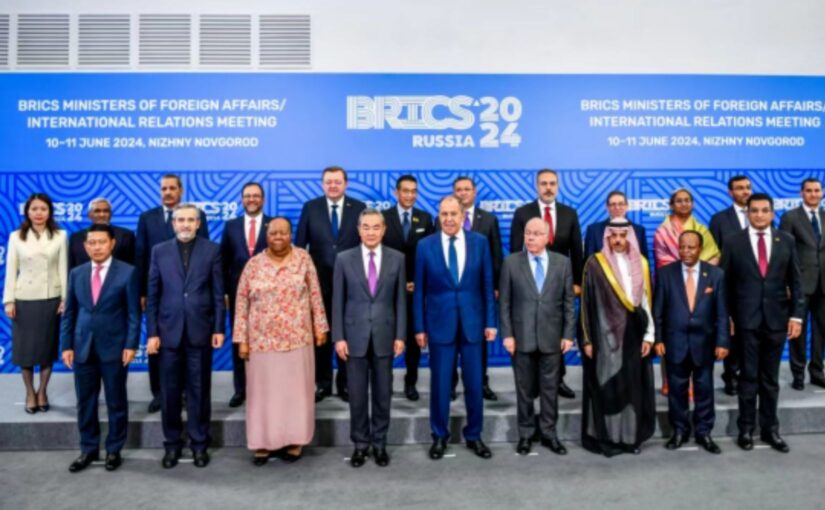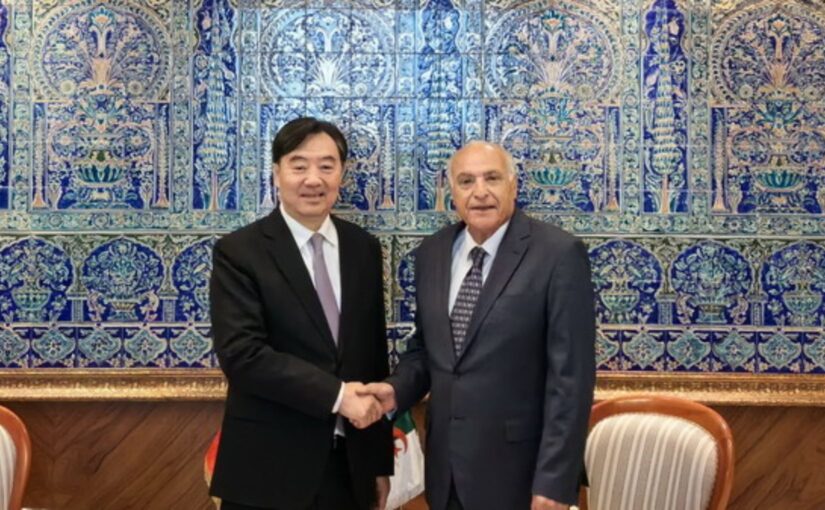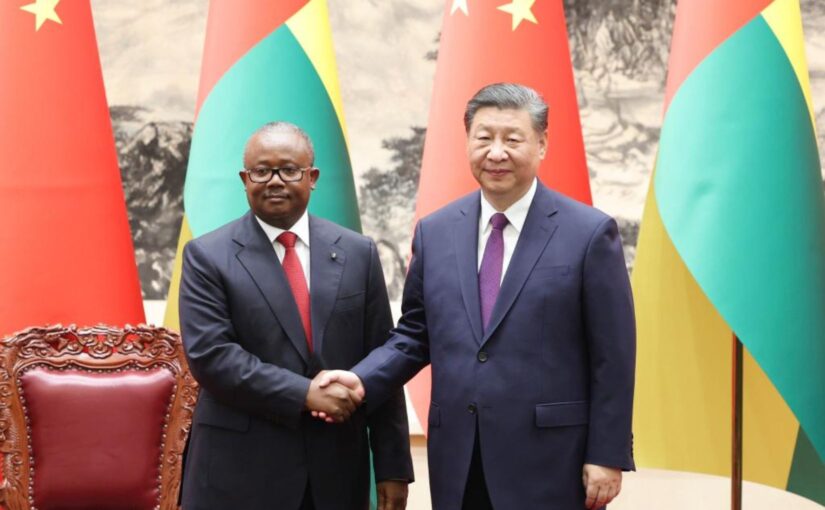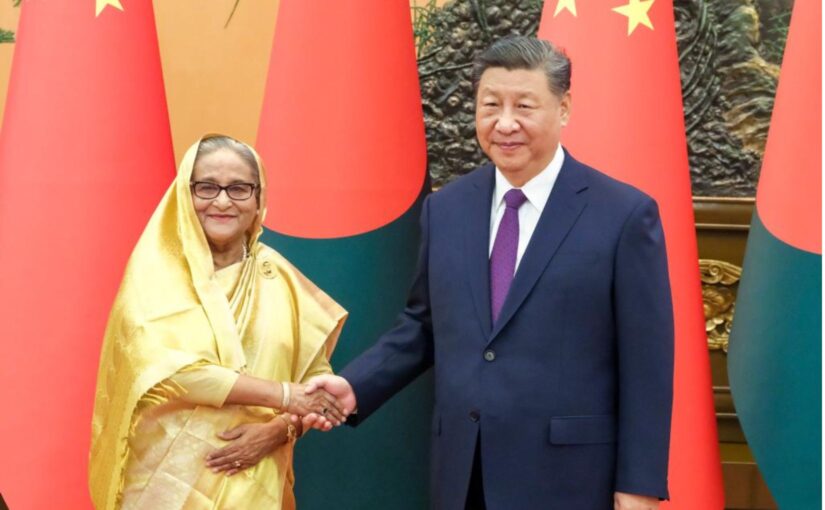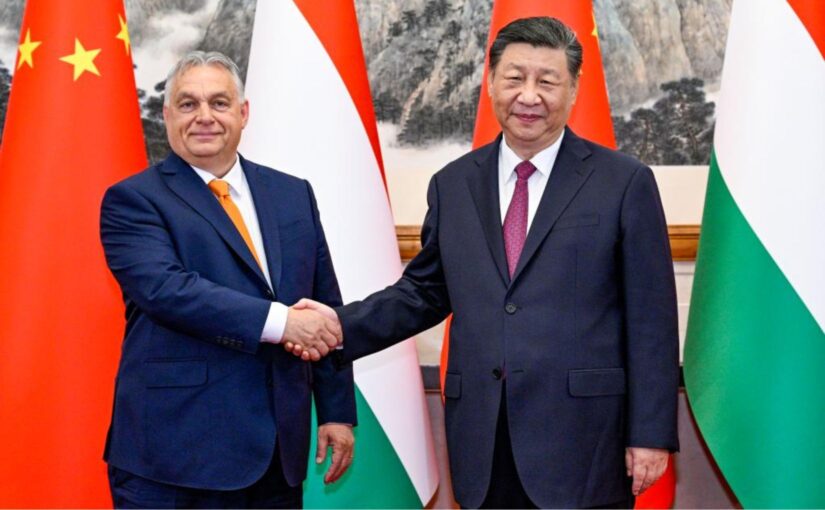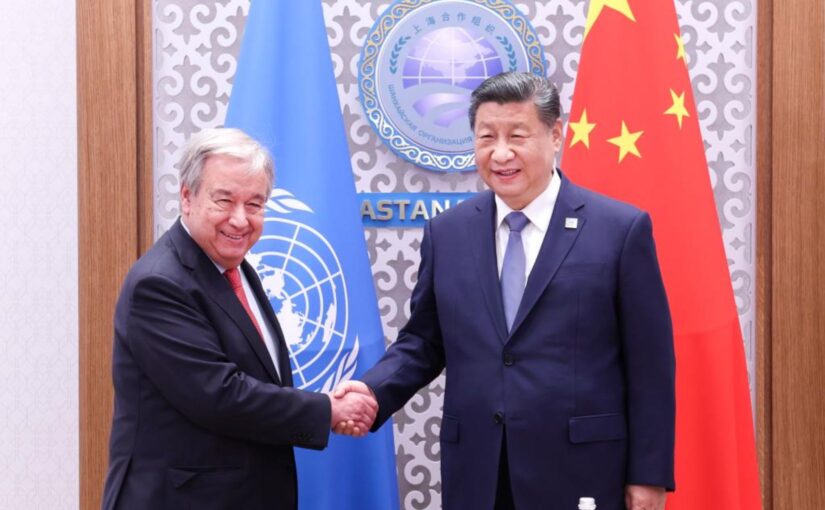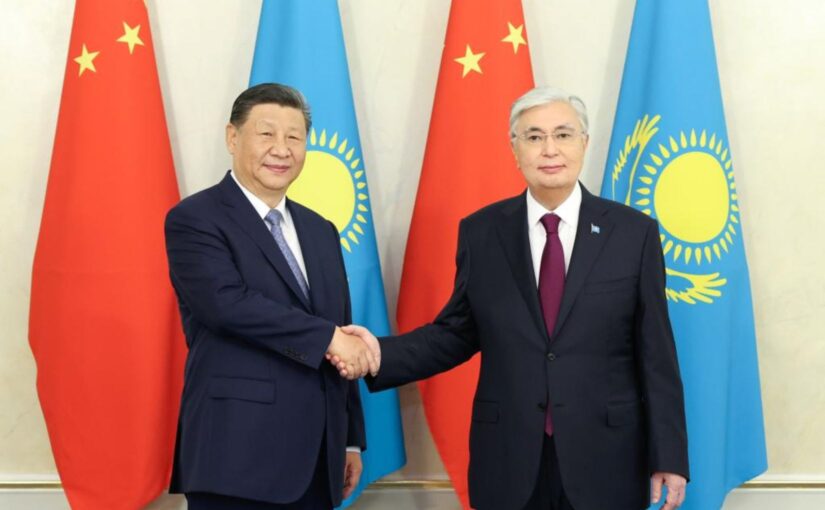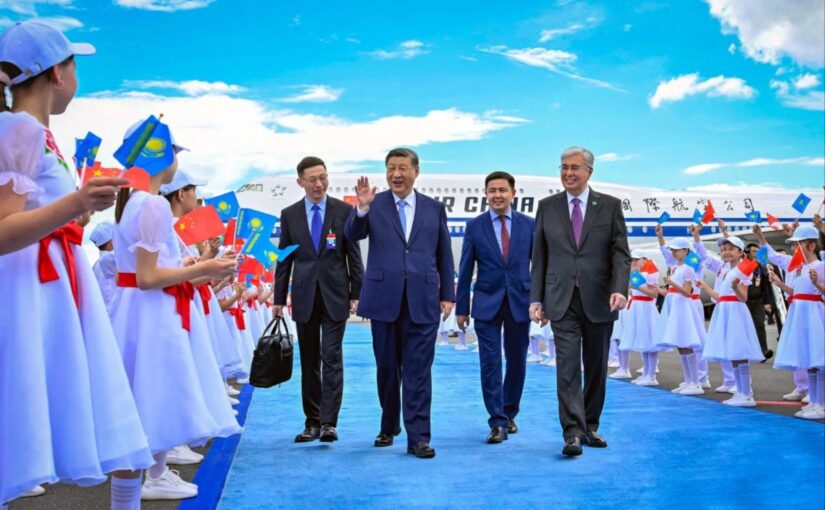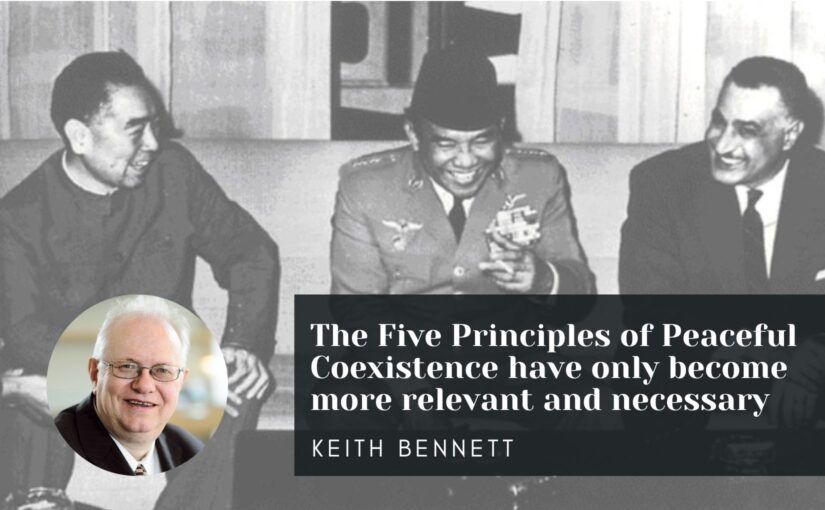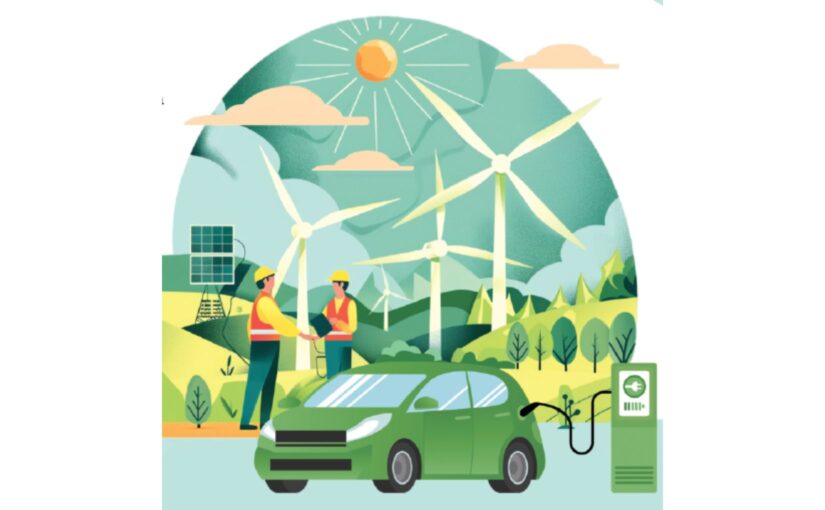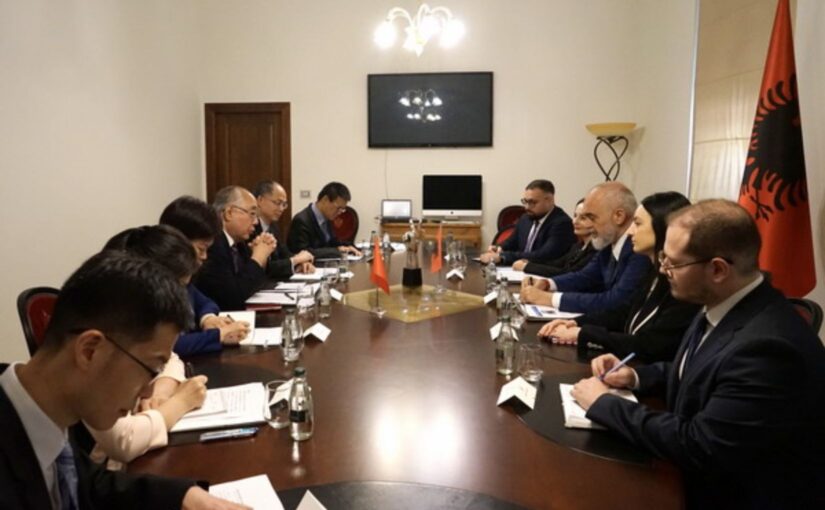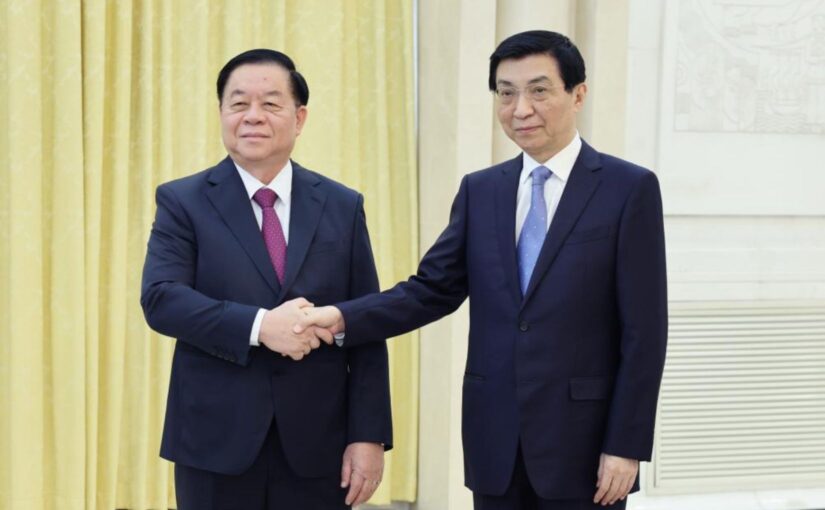We previously reported on the meeting of Foreign Ministers from the BRICS cooperation mechanism, which was held on June 10 in the Russian city of Nizhny Novgorod prior to the BRCS Summit, which will be held in Kazan later this year.
The following day, Nizhny Novgorod was also the venue for the first Foreign Ministers meeting of the BRICS Plus platform, which provides a forum for dialogue between the BRICS countries and other emerging markets and developing countries (EMDCs), many of whom have applied to join BRICS or have expressed an interest in doing so in due course.
In his speech to this meeting, Chinese Foreign Minister Wang Yi said that “we are gathered here to enhance solidarity and cooperation of the Global South, and also to provide answers of the South to a world experiencing changes unseen in a century.”
Noting that the world is now in a volatile and unstable era where changes and turbulence are intertwined, he continued:
“The Ukraine crisis and the conflicts in Gaza are dragging on. Challenges keep coming at us in areas such as cybersecurity and climate change. The United States tries to maintain its unipolar hegemony, by roping in allies to impose unilateral sanctions, erect protectionist barriers and turn economic and financial measures into tools and weapons… The North-South gap is widening. More than 100 million people are displaced and nearly 800 million suffer from hunger. The 2030 Agenda for Sustainable Development remains a distant goal.”
However, “this is also an era where the South is rising and great changes are taking place. The collective rise of EMDCs has greatly advanced multipolarity in the world… The Global South now accounts for over 40 percent of the world economy.” In the face of this situation, Wang Yi advised his counterparts, “Solidarity is the only right way forward, while disunity leads nowhere.”
On the Ukraine issue, he noted, “China stands on the side of justice and objectivity and works consistently to facilitate peace talks.” While on Palestine, “China firmly stands with Arab states. China is making every effort for an immediate and permanent ceasefire in Gaza… and the establishment of an independent State of Palestine, so as to redress once and for all the historical injustice that has dragged on for over half a century.”
Seventy-five years ago, he said, the Five Principles of Peaceful Coexistence were proposed amid the historic rise of emerging forces. The principles of mutual respect for sovereignty and territorial integrity, mutual non-aggression, mutual non-interference in each other’s internal affairs, equality and mutual benefit, and peaceful coexistence have become norms governing international relations observed by the international community, especially by developing countries. He also alluded to a criticism of multipolarity advanced in some quarters, stating: “We must debunk the myth that multipolarity is about a few big countries.”
Finally, Wang Yi noted that Nizhny Novgorod is the hometown of the great Russian writer Maxim Gorky. Evoking Gorky’s famous 1901 poem, ‘Song of the Stormy Petrel’, the Chinese Foreign Minister said: “Amidst the ever-changing international landscape, we should act like Gorky’s stormy petrel who’s certain that the clouds will not hide the sun, and fly together toward a brighter future of peace, development and win-win cooperation.”
We reprint below the full text of Wang Yi’s speech. It was originally published on the website of the Chinese Foreign Ministry. We also reproduce Gorky’s poem from the Marxists Internet Archive.
Remarks by H.E. Wang Yi at the BRICS Dialogue with Developing Countries
Nizhny Novgorod, June 11, 2024
Fellow Foreign Ministers,
Colleagues,
It gives me great pleasure to join old and new friends for the first BRICS Plus foreign ministers’ meeting after the expansion of BRICS. BRICS Plus is an important platform for BRICS countries to hold dialogue with emerging markets and developing countries (EMDCs). It has long been a source of vitality and impetus for BRICS development, and has grown to be a banner in South-South cooperation. Today, we are gathered here to enhance solidarity and cooperation of the Global South, and also to provide answers of the South to a world experiencing changes unseen in a century.
We are now in a volatile and unstable era where changes and turbulence are intertwined. The Ukraine crisis and the conflicts in Gaza are dragging on. Challenges keep coming at us in areas such as cybersecurity and climate change. The United States tries to maintain its unipolar hegemony, by roping in allies to impose unilateral sanctions, erect protectionist barriers and turn economic and financial measures into tools and weapons. Global economic recovery faces setback. The North-South gap is widening. More than 100 million people are displaced and nearly 800 million suffer from hunger. The 2030 Agenda for Sustainable Development remains a distant goal.
But this is also an era where the South is rising and great changes are taking place. The collective rise of EMDCs has greatly advanced multipolarity in the world. Many countries have entered a fast track of development, and the Global South now accounts for over 40 percent of the world economy. The latest round of technological revolution and industrial transformation is demonstrating a strong momentum, and EMDCs are embracing unprecedented opportunities for achieving leapfrog development. The Global South is no longer the “silent majority,” but an awakening new force.
Continue reading Wang Yi: The Global South is rising and great changes are taking place